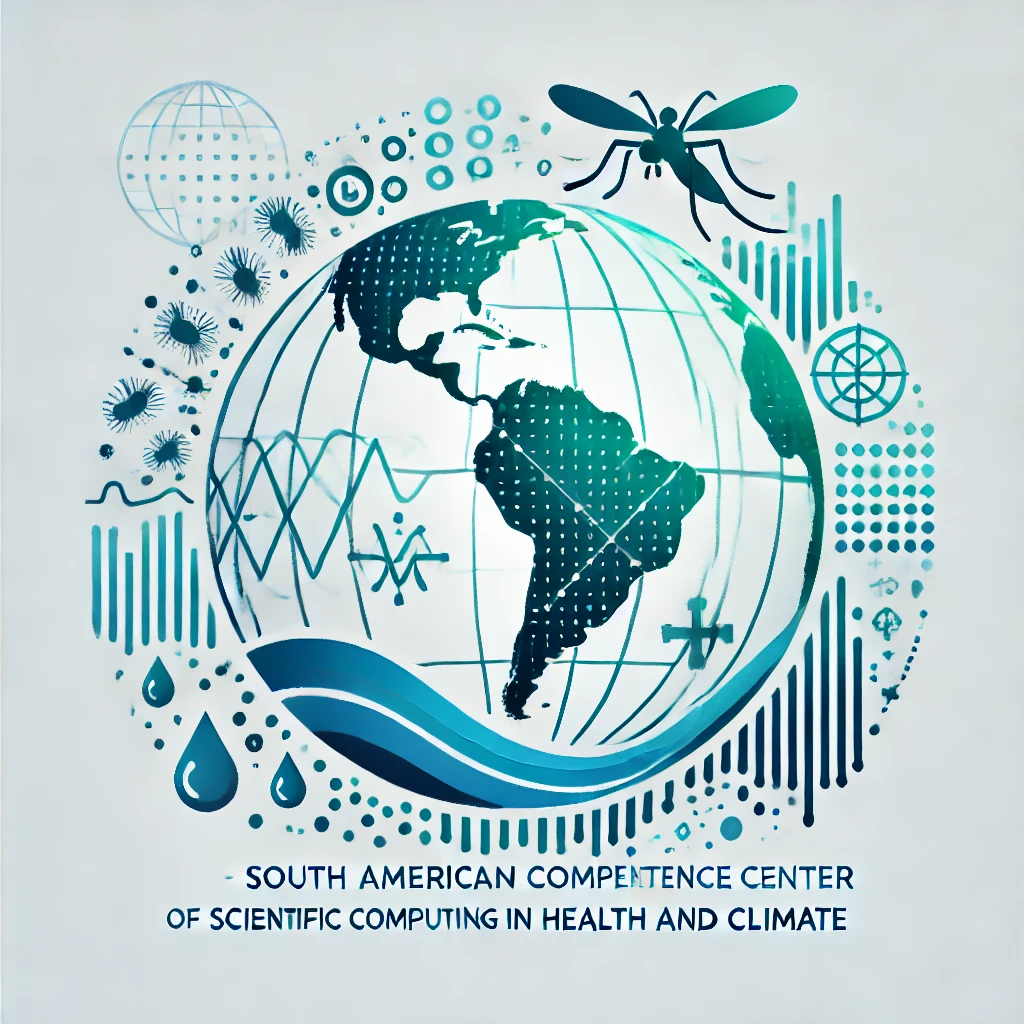Overview
The sometimes-serious effects of rapidly advancing climate change and its impact on healthcare are two major factors that stand in the way of sustainable and positive development. University education can make a significant contribution through advances in re-search, but also through the social role of universities.
Scope of the project Our goal is to establish a large collaboration of universities from Germany and Latin American countries to promote mathematical research and education in the field of scientific computing. Health and climate change are two topics of great relevance, and at the same time they pose many mathematical challenges. New ways in modeling, simulation, machine learning and optimization need to be explored. The founding partners come from Brazil, Peru and Colombia and our collaboration has already been established in prior projects, such as the DAAD funded Peruvian Competence Center of Scientific Computing. Goal is to strenghten the unity of teaching and research, particularly in the field of numerical methods for climate science and mathematical modelling of infectious diseases, as these aspects are crucial for sustainable development in Latin American countries. In its 2023 report, the Robert Koch Institute em-phasized the role of climate change for health and described future effects on Germany, e.g. through the spread of tropical mosquitoes. The institutes involved in this project have very different and complementary backgrounds and experience.
With the project, the German partners are contributing to the achievement of several United Nation’s sustainability goals at the same time: a better understanding of the spread and containment of infectious diseases is crucial for combating them. With the help of simula-tions of glacier melt in the Andes, the transport of pollutants in water bodies and groundwater and extreme events such as flash floods, we are contributing to sustainable water man-agement. A key economic sector in many South American countries, which is also important for the supply of food, is fishing. Both fishing in the oceans and water resources on land are threatened by climate change.
Relevant mathematical models, the development of algorithms and numerical simulations are required to control all of these aspects. Promising results can be implemented directly with the help of the interdisciplinary cooperation partners, such as measures for mosquito control. Research and teaching in the partner countries are supported and science and uni-versities are strengthened in terms of their acceptance as important public and political institutions.
Planned events In summer schools or workshops, all project partners work together on a content-related, didactic and administrative level. Together we develop curricula in the field of scientific computing, as well as lectures (online or hybrid), which are then carried out jointly. We carry out doctoral projects with teams of supervisors made up of PIs from the German and South American partner universities. Selected doctoral projects at the South American partner universities receive project funding. A programme of visits (North-South-North and South-South) deepens networking and strengthens sustainability.
The project will be realised in a mutual and equal exchange. The international networking of the actors with us and with each other is central. An important goal is for the network to exist on its own initiative and to develop its own activities far beyond the duration of the project.



